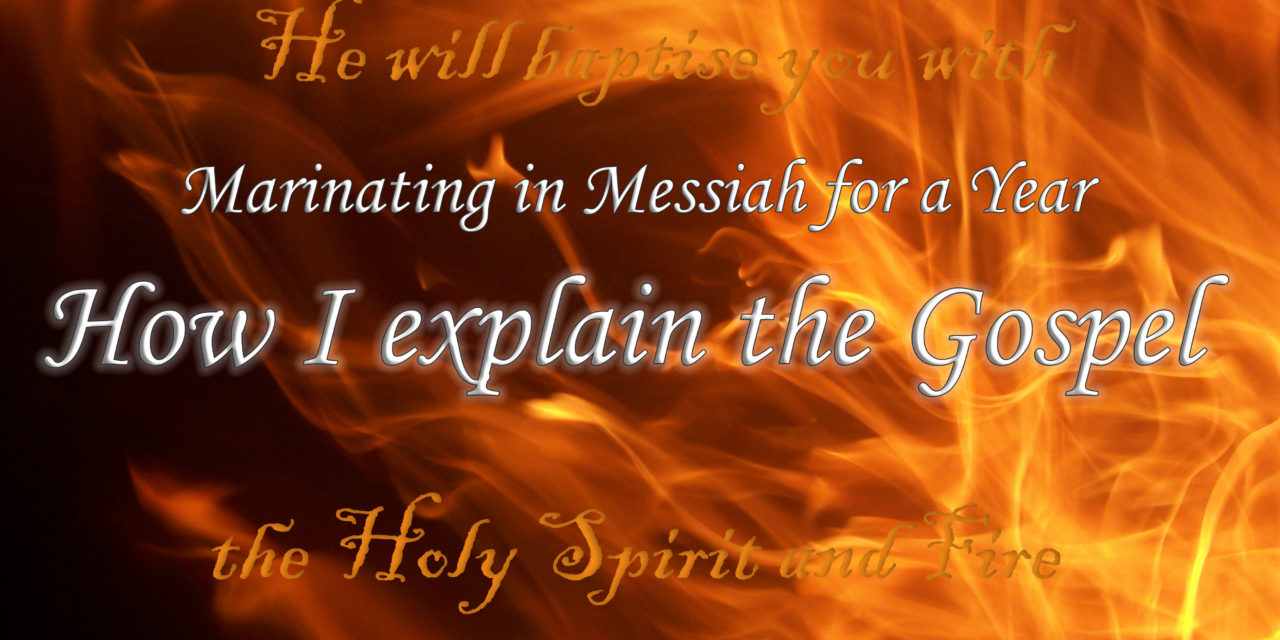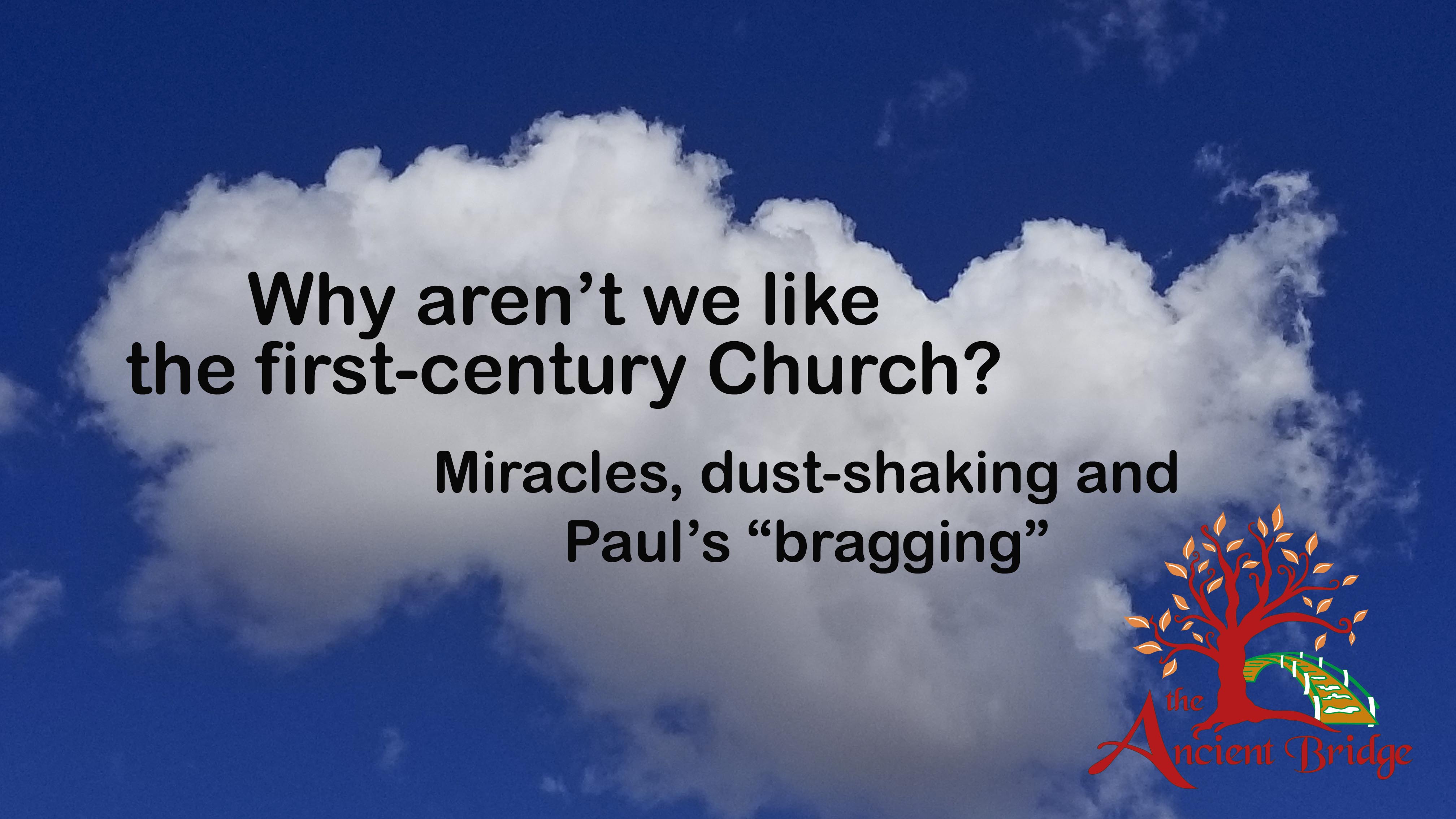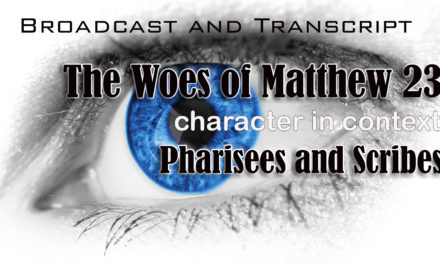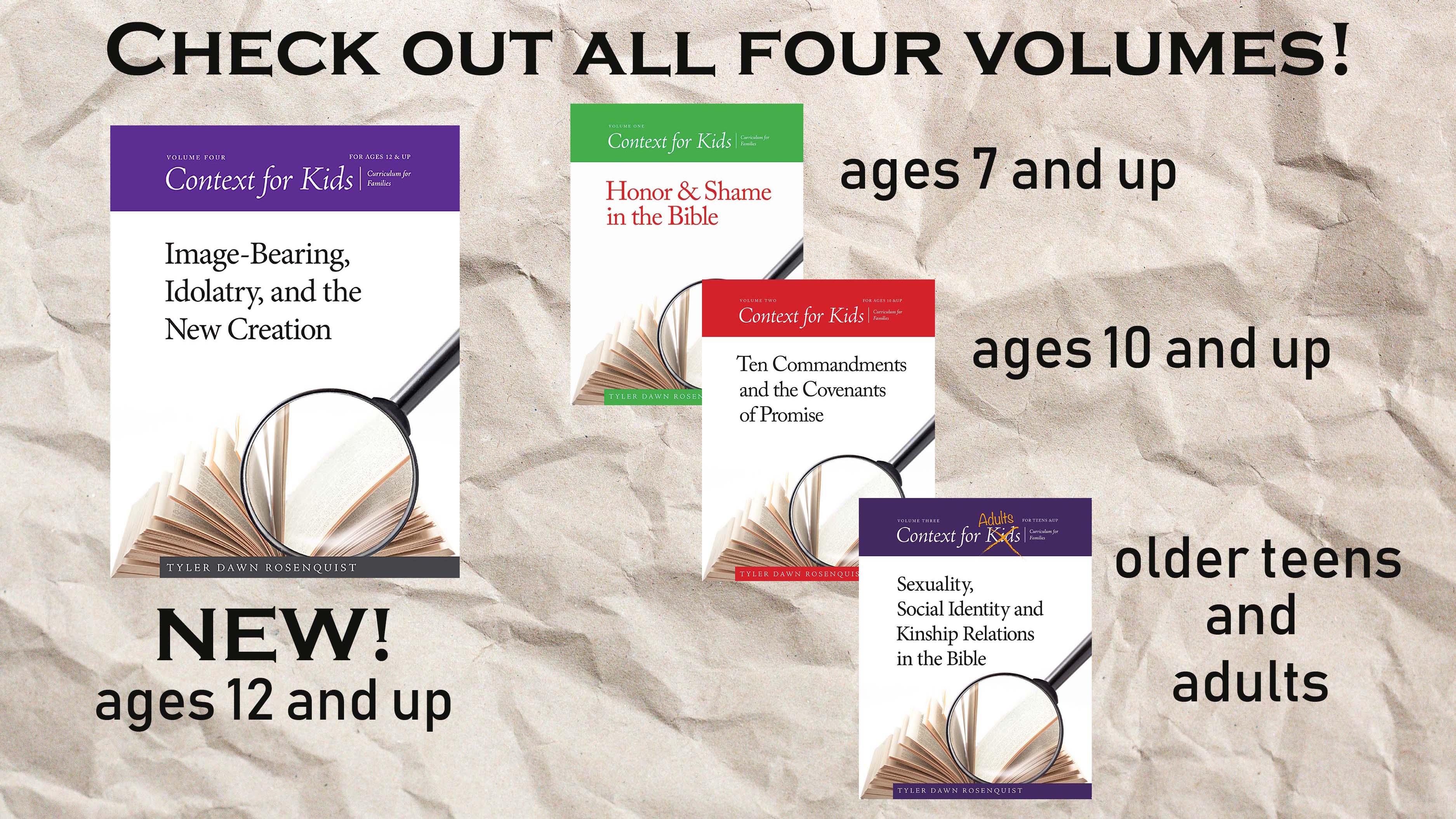Yes, I know I was planning on writing these all year, but as you might have noticed, doing my radio show about the Messiah and the Gospels and the first-century context absolutely swallowed up all of my time. I have never been so busy in my life, putting together an hour broadcast every week. If you haven’t caught them yet, old broadcasts are archived and available for download at CharacterInContext.podbean.com and new broadcasts are currently available on Hebrew Nation Radio on Tuesdays and Fridays at 5pm PST/8pm EST and Wednesdays at 1pm PST/4pm EST. I have also started making Context for Kids youtube videos again, aiming at between 5-10 minutes in length, focusing on the Gospels. We’ve been exploring Matthew Chapter 23 lately.
Anyway, yesterday I was asked two really good questions and I wanted to put my answers in an easy place to find for further use. So here seemed good.
First Question: “How do you explain the Gospel and why we keep the commandments?”
Well, I explain it a bit differently than most do and much differently than I used to, but it boils down to the same basics. During the first century, and before that even, the Jews in Israel knew they were still very much in exile and nothing weighed heavier on their minds, as we can well imagine. They were praying for salvation and forgiveness for sins, which to them meant God forgiving them of the national sins that kept them in continued bondage and bursting onto the scene once more with a renewed salvation, a second Exodus (which exactly how the Gospels, and especially Mark, present Yeshua’s/Jesus’s story). Most, but not all, expected this in the form of a political/warrior Messiah who would deliver them from the Romans and all the nations, forever. The Pharisees, in particular, fasted and prayed twice a week–and based on Biblical and other arguments, many scholars believe that they were doing so in repentance to bring on the coming of the Messiah (many modern Jews, like Elie Wiesel [may his memory be a blessing], still believe and do this), who would be militantly empowered to exact God’s wrath upon the nations, in light of God’s forgiveness of the sins of their people, which they believed were responsible for the continuance of their exile.
I mean, they were in their own land, but they were still under foreign domination and their brief self-rule had been even worse–so this was a very real exile, just at home. That’s what “forgiveness of sins” meant to that audience, freedom from this exile. It meant a clean slate with God at long last. It’s different than how we look at it. It was an absolute wiping out of their outstanding debts to God, which would usher in not only His defeat of the pagan nations but also a renewed Kingdom under a Davidic king (the fallen Tabernacle of David).
When Yeshua came, it was in fulfillment of the prophecies and in response to their prayers. It was the invasion of the Kingdom of God into our world. Yeshua showed, in effect, what God’s love and salvation were really like–it was the caring for the least of these, the loving of the outcast, the healing of the sick in order to reintegrate them into the community, restoring sight, cleansing lepers, the lame walking, the dead being raised–it was about justice. It was about freedom for the captives–and not just the Jewish captives. All the world was in hopeless, endless bondage and God was enacting an unprecedented deliverance. God was making a statement through Yeshua that demanded an appropriate response from all people. Either they looked at Yeshua and said, “Yes, this is what God looks like in the flesh, this is His character, these are His works,” or they would reject Him in favor of their own ideas and worldly concerns. Of course, we know that the Galilean Jews overwhelmingly accepted Him, but the Judean leadership turned many against Him. They conspired to manipulate the Romans into killing Him and He was crucified but, of course, He raised from the dead vindicated and entrusted with all authority in heaven and on earth (Matt 28:18). Later, at Shavuot/Pentecost, the Spirit came visibly down on His 120 gathered disciples, male and female, in power.
This isn’t just one historical confrontation from God, saying, “This is the manifestation of me, and you must recognize Him and what is happening in His wake as being One with me in order to show your loyalty,” it is three confrontations. He showed Himself in power in ministry, in the resurrection, and in the outpouring of the Spirit. This is God fulfilling His Messianic intentions, as opposed to the Messianic hopes of the people. God came to save the world, not to destroy. He came to bring Israel’s enemies to repentance, not to destruction. He came not to replace Israel, but to expand its borders to include people from all nations.
He showed us how to live for one another, not just to please Him but to be Him to one another. The Cross made it possible to be crucified with Him, to strike a death blow to the evil within, and something tangible happens when we declare our loyalty to Him in this way–we are changed from glory to glory, bit by bit. The Spirit comes in and makes a lot of changes over the course of our lifetimes, sometimes imperceptible ones and sometimes earthshattering ones, but year after year we can become people through whom His loving-kindness can flow. That happens IF we desire to yield to the process and love and serve others and Him–and IF it just isn’t some “get out of jail free card” that we wave around with no willingness to invest in others.
I repeat that–the Christian ideal is to invest wholly in others, to become people who can and will die daily for one another and, in so doing, become image bearers of the One who did the same for us when we were still lost.
As for keeping the commandments, this is where I think many people get off course. When we boil the commandments down to a bunch of do’s and don’ts, oftentimes we get caught in legalities that do not serve our neighbors or our God. It isn’t a black and white thing–it is a wisdom that grows within us. Torah is the starting place and not any sort of finish line, with only 613 sometimes quite vague laws, and most of which relating only to the Temple and Priesthood, we can get away with a whole lot of evil while not technically “breaking” it. We are quite capable of “keeping” the Torah while neither honoring it in either spirit or in truth. We can make some serious judgment calls of omission while still satisfying a bare minimum and count ourselves as not being transgressors. There are loopholes for those who desire a “to do” list instead of living a life of sacrificial love toward God and others. We would rather it be black and white, a sort of checklist because that’s something we believe we can accomplish–but wisdom is tricky and requires His constant guidance and a whole lot more maturity than I currently possess to always get it right. Love requires wisdom, submission and sacrifice–or it isn’t from above.
Second Question: “I am left wondering about those who lived before Yeshua lived, died, and rose again…How did those people achieve the heart change? Hasn’t it always been through faith in YHVHs love and mercy? Just pondering. Things I have been thinking about in my own mind lately.”
Answer: The circumcision of the heart was absolutely more difficult without Yeshua. He, through our professed loyalty to God through Him, enables us to supernaturally become new people. We also saw this in the Tanakh with the anointing of both Saul and David–they became new people and yet, as in the case of Saul, he almost never trusted God and so he forfeited God’s working in His life. I am also aware of amazing Jewish Tzaddikim in our own times–Chaya Sarah Kramer and her husband–amazing story.
In the times before Yeshua, before the Cross, it was incumbent upon the children of Israel to live faithfully to the Covenant. They were to be a light to the nations. However, the majority of people fell prey to assimilation and became not only as oppressive and idolatrous as the nations around them but, according to the prophets, even worse. They didn’t impact the nations, the nations impacted them. The faithful, of course, were always there–there was always a remnant of faithful Israel who inherit the world to come. Sometimes it was the majority of Israelites and sometimes it was a minority. Generally depended on who was king at the time, honestly, and how he led the nation. Covenant faithfulness absolutely existed before Yeshua, but when Yeshua came it was redefined. God was calling His people to a new level of faithfulness and a new kind of loyalty through His Son–who showed them what He looked like, what His mercy and compassion looked like in the flesh. To put it another way, people follow their King, and God had to put in place a perfect King, permanently, so that we wouldn’t be emulating and unduly influenced by the questionable integrity of human kings anymore.
But honestly, you know, we see people like Chaya Sarah (I recommend the book about her called “Holy Woman“) where she was living in such a way that she sure looked Spirit led to me and yet as a Chassidic Jew, she did not accept Yeshua but she lived as though she was His disciple and so did her husband.
But mercy and love, yes, they have always been there. When we look at how many generations of idolatry and oppression went by while God waited patiently for them to repent, yes, incredible testimony of His nature.
We just don’t have all the answers. I think our brains are too small to comprehend His goodness–mine definitely is, anyway.






















do you have a teaching on the book of Daniel
Sorry, I do not. Although I have read it many times, I have just never done any sort of intensive study into it.